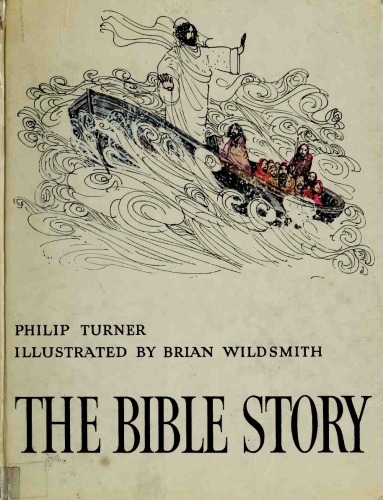
Eisenhower
The White House Years
کتاب های مرتبط
- اطلاعات
- نقد و بررسی
- دیدگاه کاربران
نقد و بررسی

June 13, 2011
The political skills Dwight Eisenhower honed while commanding a fractious WWII alliance made for a great presidency, according to this appreciative but also probing biography. L.A. Times editor-at-large Newton lauds the 34th president's "middle way" rejecting extremes of left and rightâincluding the antiâNew Deal ravings of his ultra-conservative brother and the anticommunist witch hunts of fellow Republican Joseph McCarthyâto extract peace and prosperity during the turbulent 1950s. At home, Newton notes, Eisenhower steered a fiscally responsible course between Democratic domestic spending and Republican tax cuts and military boondoggles, while initiating a colossal interstate highway system. He championed a massive nuclear deterrent, but resisted pressures to use it and persistently defused geopolitical crises. The Eisenhower-approved coups in Iran and Guatemala were exceptions of which Newton provides trenchant critical accounts. Eisenhower's timid middleism on civil rights looks uglier, but Newton (Justice for All: Earl Warren and the Nation He Made) notes that, once the courts ruled, Ike took his marching orders and sent troops to enforce school desegregation. Drawing on declassified documents, Newton's narrative, especially of the many international crises, is clear, brisk, and insightful, a timely study of a master of consensus politics with lessons for today's polarized Washington.

July 1, 2011
Admiring biography of the 34th president.
A national hero, Dwight D. Eisenhower (1890–1969) could have run for president for either party but was temperamentally inclined to the Republicans. After a landslide victory, he chose a strong cabinet with a variety of opinions, from the fierce Secretary of State John Foster Dulles, to Attorney General Herbert Brownell, who supported the nascent civil-rights movement. Los Angeles Times editor at large Newton (Justice for All: Earl Warren and the Nation He Made, 2006) points out that every incoming president believes that the nation is in crisis, and few doubted this in 1953. The Korean War was entering its third year of bloody stalemate; communism seemed on the march abroad with McCarthy's anticommunist hysteria spreading confusion at home. Within a year, the war had ended, McCarthy had self-destructed and Eisenhower—not Dulles, insists Newton—was conducting the Cold War with good sense. The author explains his lackluster performance on civil rights on the weak grounds that he was a man of his times with many segregationist friends and little sympathy for blacks. Yet, by the standards of today's Republicans, Eisenhower was a liberal who accepted New Deal social programs, showed no interest in massive tax cuts and opposed America's enemies while refusing to support a military buildup. Although contemporary observers described him as an amiable, inarticulate figurehead, his reputation has risen since.
Newton works hard with some success to argue that Eisenhower was a firm leader who kept his head during crises, encouraged America's burgeoning prosperity and left the office to a more pugnacious successor (JFK) who did not improve matters.(COPYRIGHT (2011) KIRKUS REVIEWS/NIELSEN BUSINESS MEDIA, INC. ALL RIGHTS RESERVED.)

June 1, 2011
An enduring image of Dwight Eisenhower as president is that of an affable, golf-playing, detached chief executive who too often delegated authority to powerful, more politically savvy aides. Newton, a Los Angeles Times editor-at-large, effectively counters that distorted image. Aided by recently released documents, his well-researched account shows that Eisenhower was an engaged, decisive leader guided by some bedrock moral and political beliefs. Although most of the text concentrates on Eisenhower's two presidential terms, Newton includes interesting observations on his youth and military career, and his descriptions of Eisenhower's relationships with his military colleagues Patton, Marshall, and MacArthur are particularly informative. Newton asserts that Eisenhower as president consistently made tough and usually correct decisions, especially when overruling more hawkish military advisors regarding nuclear weapons. A well-done presentation that helps correct enduring perceptions about an effective but misunderstood presidency.(Reprinted with permission of Booklist, copyright 2011, American Library Association.)

























دیدگاه کاربران